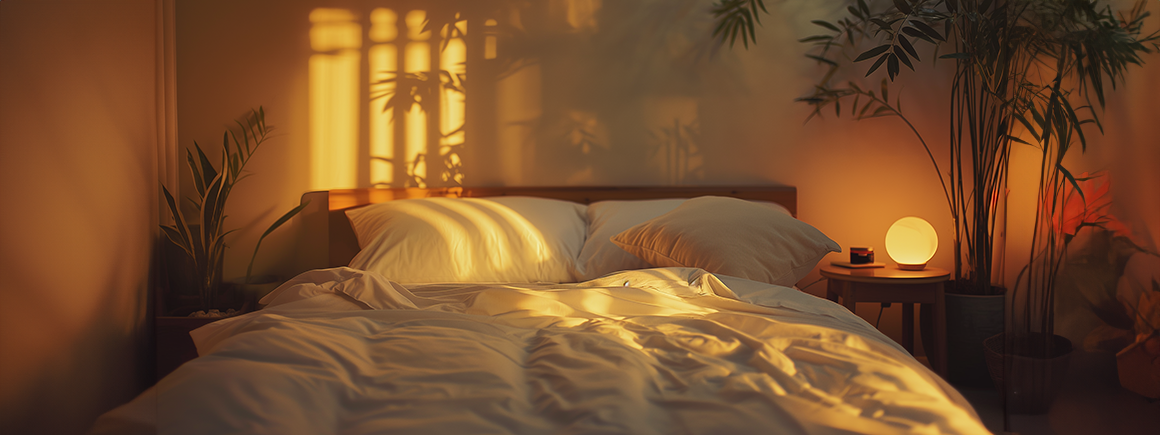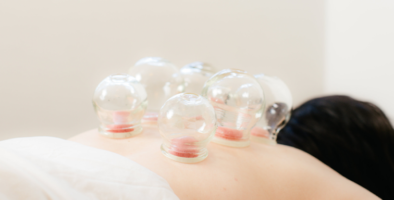The Ultimate Sleep Hygiene Checklist
Fall asleep quickly, stay asleep, and wake up feeling fantastic in the morning.
Are you weary of tossing and turning all night? Does good sleep continue to elude you? No matter where you land on the good sleep scale, a checklist is a helpful tool to ensure you do everything possible to enhance your sleep quality. While different lifestyles may present unique challenges to following all steps, prioritizing quality sleep is paramount—sleep is so important! You might find that if you sleep well, all your other daily tasks will seem less daunting.
Reduce Blue Light Exposure
The day-to-night transition signals your body that it’s time to wind down and prepare for sleep. Electronic devices and their intrusive blue light can disrupt these signals and impede the production of the hormone melatonin, which regulates sleep-wake cycles. So limit how much you use your devices at night, especially 2-3 hours before bed.
Here are some tips: Set a schedule on your computers and phone so it automatically changes to a warm glow; charge your phone across the room from your bed so you avoid the temptation to check your phone while in bed; and set your phone to a red light, which is less disruptive. Follow this video to learn how. Of course, nothing beats turning your phone off entirely and reading a good (physical) book.
Make Your Bed Extra Comfortable
Take stock: Do you like your pillows and your bedding? Is your mattress firm enough for you? Can you make your bed a little more comfortable? Consider using cooling sheets, adding a pillow top, or using a blanket each if you share your bed. Duel duvets can help you avoid nighttime tugs-of-war.
Go To Sleep and Wake Up at the Same Time
Our bodies thrive on routine, so going to bed and waking up at the same hour daily helps regulate our internal clock, known as the circadian rhythm. This consistency reinforces our body’s natural sleep-wake cycle.
Exercise Regularly—But Not in the Evening
Regular exercise helps your body release stress and feel calm in the evening. Just think twice before exercising late in the day—it might be more difficult to wind down at night if you did an intense workout a couple of hours before.
Go Outside During the Day
Getting sunlight first thing in the day can help your body’s internal clock work better and make you feel more awake. Go outside in the morning, or better yet, take a 15-minute walk to get your blood pumping.
Cut the Caffeine
This is as obvious a rule as it is hard to adhere to. If you drink coffee throughout the day, your sleep will undoubtedly improve if you say no to caffeine after noon—or at least 8 hours before bedtime. Also important? Avoid rich and heavy foods, hot and spicy foods, fried foods, and alcohol, especially later in the day.
Eat a Healthy Diet
Good, nutritious foods are crucial to good sleep. Proper nutrition ensures your body can function at its best and produce all the necessary hormones to promote good sleep. Yogurt is an excellent late evening snack – the casein and tryptophan in dairy help promote a more restful sleep. Some chamomile tea or warm milk also works well before bed.
Lower Your Bedroom Temperature
60-68 degrees F is the ideal temperature for sleep. Open windows for fresh air and adjust thermostats to cool things down. If you have the option, schedule your thermostat to decrease the temperature a few hours before bed. For example, set it to go automatically to 67 degrees F at 7 pm and 64 degrees F at 10 pm.
Limit External Noise
Noise can lead to interrupted sleep, which has short and long-term consequences as mild as irritability the next day or as damaging as high blood pressure and heart disease. External noises like traffic outside or a snoring partner can disrupt your sleep and prevent you from reaching deep, restorative rest. To mitigate noises, try white noise machines, fans, earplugs, or listen to music or binaural beats—which you can find in meditation apps like Insight Timer—in your headphones. If you like podcasts, try listening to something unengaging or a book on tape, with the timer scheduled to turn it off after 15-30 minutes.
Make Your Room DARK
Similarly to noise, light can wake you up periodically throughout the night. Fragmented sleep is unhealthy. Street lamps, a blinking fan light, television—minimize as many light sources as possible. Try blackout curtains, a sleep mask, or both!
Wind Down With Purpose
A calming evening routine will help prepare your mind and body for an excellent night’s sleep. Do what works for you! Meditate, gently stretch for 10 minutes, use myofascial release tools like RAD or foam rollers, do legs up the wall, do deep breathing exercises, or do yoga nidra. Whatever you can consistently do to help quiet your mind will help your body get ready to snooze and enjoy a restful night.




